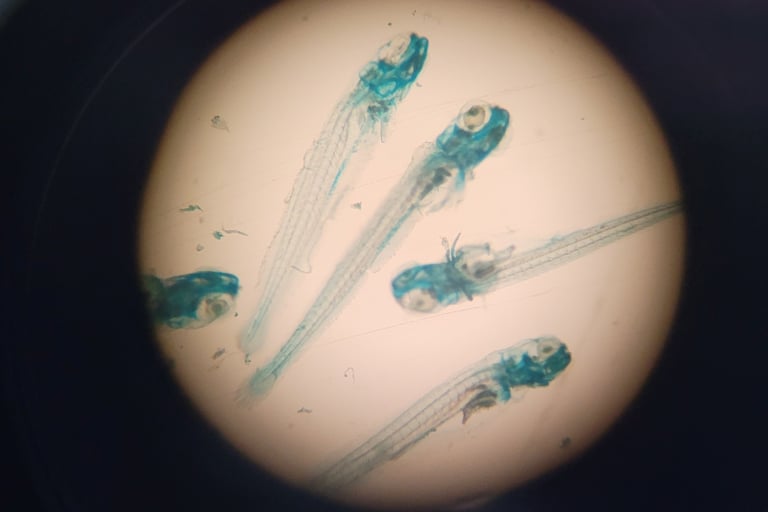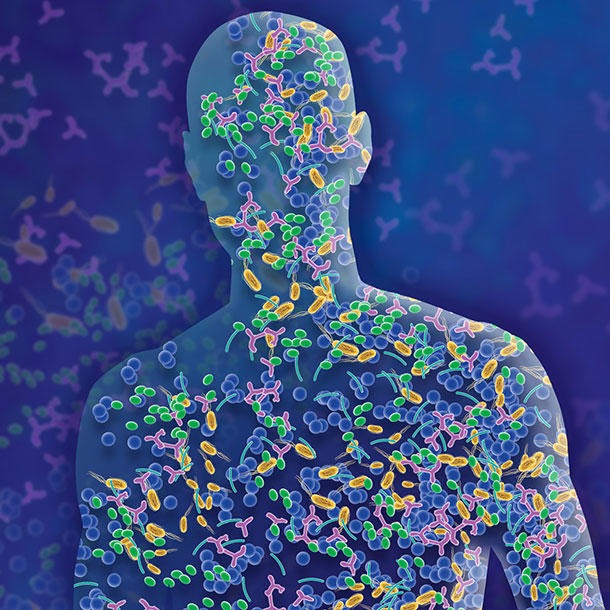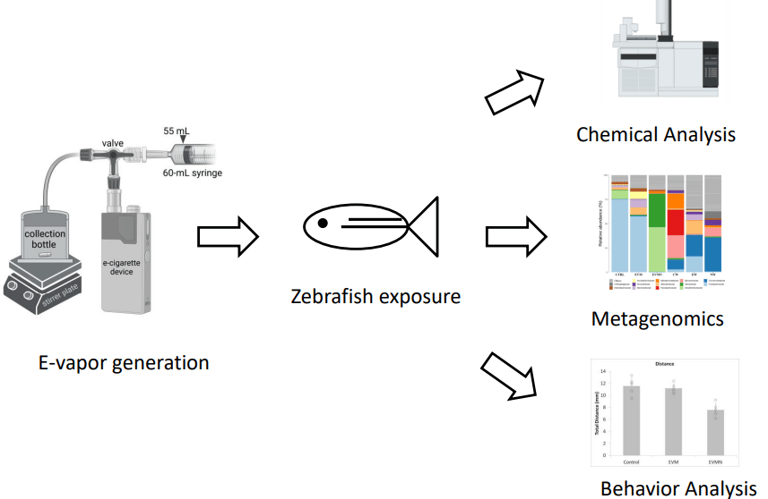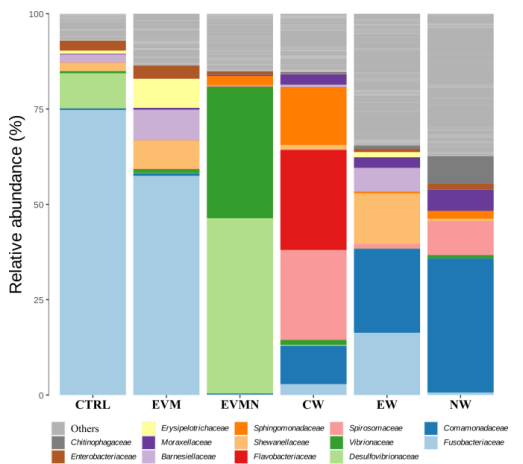E-cigarette vapor alters gut microbiota composition in zebrafish
Summary:
Vaping is often seen as a safer alternative to smoking, but what if its effects reach beyond the lungs? In this study, we explored how exposure to e-cigarette vapor—both with and without nicotine—can alter the gut microbiota and behavior of zebrafish, an established model for human health research. By combining chemical analysis, microbiome sequencing, and behavioral assays, we discovered that even nicotine-free vapor disrupts the delicate microbial balance of the gut and triggers changes in fish behavior. These findings reveal that the effects of vaping may extend far beyond what we can see or feel, influencing both the gut and brain in subtle but significant ways.
Download:


E-cigarettes have become popular as a “healthier” alternative to smoking, but their long-term effects on the body are still not well understood. While most studies focus on the lungs, growing evidence suggests that vaping may also affect the gut—the body’s second brain—where trillions of microbes regulate digestion, immunity, and even mood.
In this study, we used zebrafish as a model to explore how e-cigarette vapor, both with and without nicotine, influences gut microbiota composition and behavior. The findings reveal a surprising truth: even nicotine-free vapor can disrupt gut balance and alter neurobehavioral patterns, hinting at systemic effects that go far beyond the respiratory system.


More Than Just a Lung Problem


The Experimental Design
To mimic real-world exposure, zebrafish were placed in water treated with vapor condensates from e-cigarettes containing either nicotine (EVMN) or no nicotine (EVM). Using a combination of chemical analysis, 16S rRNA gene sequencing, and behavioral testing, we looked at how vapor exposure changed both the internal microbiome and external behavior of the fish.
Chemical profiling confirmed that both vapor types contained toxic aldehydes (such as formaldehyde and acetaldehyde), while nicotine was present only in the EVMN group. These compounds, known for their oxidative and inflammatory effects, served as the foundation for the biological changes that followed.
E-cigarettes and Gut Microbiomes
Both vapor types triggered clear microbial dysbiosis, or imbalance in gut bacteria. Nicotine-free vapor (EVM) altered bacterial families related to inflammation control, while nicotine-containing vapor (EVMN) caused even more severe shifts, reducing beneficial microbes like Fusobacteriaceae and increasing stress-associated species like Vibrionaceae and Sphingomonadaceae.
These microbial changes were not just cosmetic; functional analysis revealed increased activity in pathways related to xenobiotic degradation, oxidative stress, and immune response, suggesting that the gut was actively trying to detoxify chemical exposure. Nicotine exposure amplified these pathways, compounding the stress on the microbial community.


Behavioral Changes
Changes in gut composition were mirrored by changes in fish behavior. Both nicotine and non-nicotine vapor exposure led to increased top-dwelling, hyperactivity, and reduced reflex responses; all patterns associated with anxiety and neural dysregulation.
This supports a growing concept known as the gut–brain axis, where disruptions in gut bacteria can influence neural activity and behavior. Even without nicotine, the aldehydes and other by-products of vaporization appeared to affect the nervous system indirectly through the microbiome.


Implications
The results suggest that vaping—even without nicotine—can disrupt gut microbiota, induce oxidative stress, and influence brain-related behavior. These systemic effects highlight the need to reassess how we define the “safety” of e-cigarettes.
By demonstrating that vapor exposure can alter both gut and brain functions in a controlled zebrafish model, this research provides one of the first integrated views of how vaping affects the body beyond the lungs. It calls attention to the complex, whole-body impact of inhaled chemicals and raises new questions about how everyday habits interact with our microbiome.
Contact
Reach out to discuss ideas or collaborations.
Phone
camtan064@gmail.com
+63 927-114-1655
© 2025. All rights reserved.
Navigation
